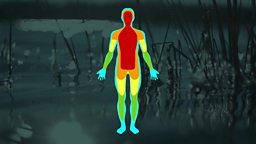Can you trust any of the health information found online?
When we’re not feeling well, more than 50% of us would rather turn to the internet these days for a diagnosis than visit our doctor.

And yet, the drawbacks are well known. Imagine you have eaten a heavy meal and an hour later you get pains in your chest. If you type the symptom ‘chest pain’ into a search engine, one of the first results it will usually offer is ‘heart attack’. But what you are experiencing is unlikely to be a heart attack; it’s more likely to be indigestion, and you may simply be causing yourself unnecessary worry. Do this regularly, and you may experience what’s known as ‘cyberchondria’ – medical anxiety caused by researching your own symptoms online.
So can we ever trust the internet for medical information?
If you use a regular internet browser to look for information on symptoms, it will tend to offer the very worst-case scenario. One of the main reasons for this is the way that search engines hunt. Rather than list the most likely option first, algorithms rank pages according to how many times a keyword is mentioned or how many clicks that page gets. As internet users tend to focus on the first few results, rather than looking further down the list, the same handful of sites get clicked repeatedly, meaning they remain at the top, even if the diseases they suggest are rare.
Another common way to search for information is to use an online ‘symptom-checker’, but according to a recent study they only make the correct diagnosis 34% of the time.
To get the best from these sites, be as specific as you can about your symptoms. For example, include information about the intensity of your pain or the duration of your vomiting – this can help to narrow down the results. Nevertheless, many of these sites struggle to differentiate between life-threatening illness and a simple stomach ache.
Even though most of us know we shouldn’t fully trust the medical content of something we’ve looked up online, many of us still do it because it is quick and easy. For some people the difficulty of getting a GP appointment or time off work will be enough to encourage them to use the internet to diagnose the cause of their symptoms.
However, a key danger of doing this is that it can delay a visit to the doctor which could give you a correct diagnosis and treatment.
If you do choose to use the internet for self-diagnosis, then do use the NHS websites. The information has been rigorously checked by clinicians, and they feature sections to help guide you through popular myths and misconceptions.





























